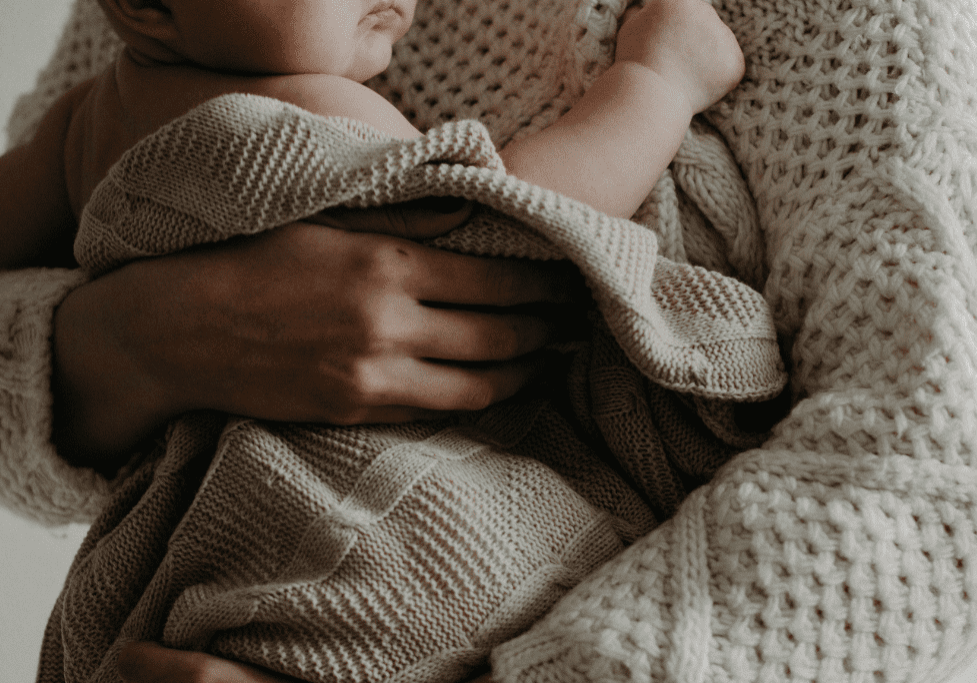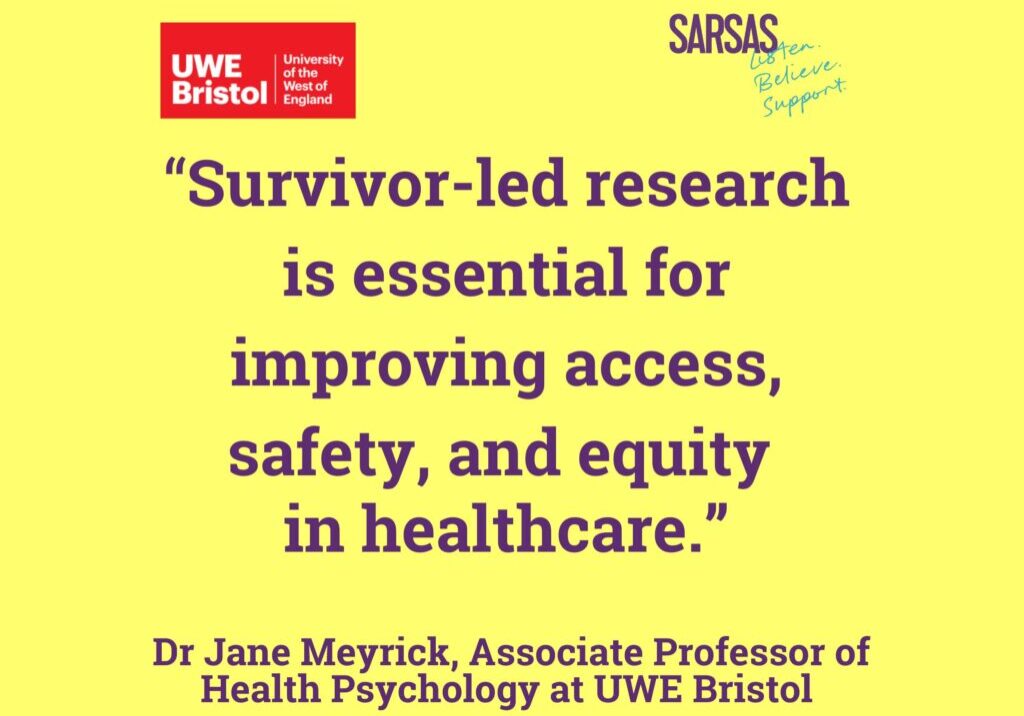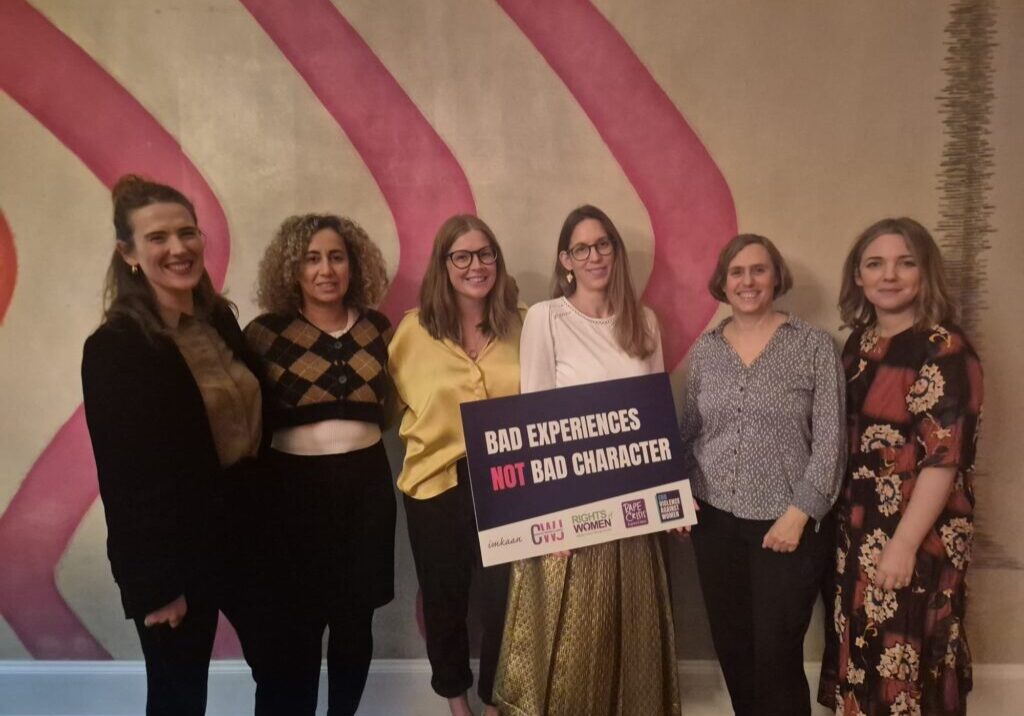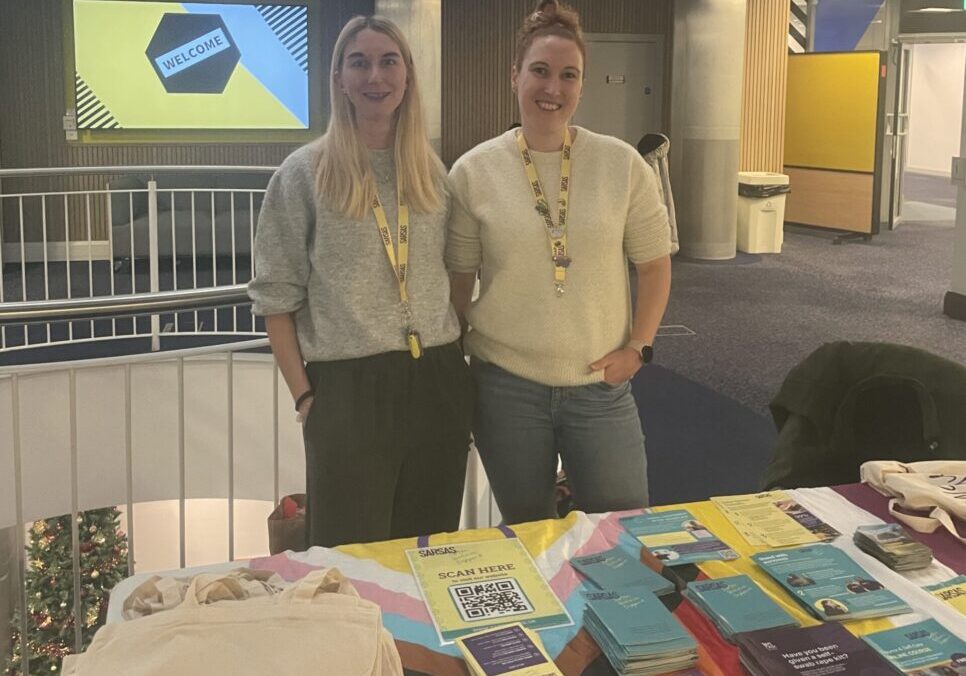
Motherhood and trauma
From one of our brilliant counsellors who looks at the experiences of mother’s who have experienced trauma.
I am writing about the impact of trauma on motherhood not just as a counsellor but also as the daughter of a mother and step mum who experienced considerable trauma. I am not a mother myself but I am aware that at the best of times its messy… full of the beautiful, the tiring and those stretching beyond your personal capacity kind of moments on a daily basis and that’s before adding trauma into the mix.
I want to celebrate all the mothers I have had the pleasure of working with at SARSAS but also normalise some of the specific ways trauma can impact on motherhood.
Pregnancy and Birth
One area I have found where trauma can have a dramatic impact is during pregnancy and birth.
Statistically women who have experienced sexual violence find it harder to deal with the hormonal and physical changes to their body during pregnancy than those who haven’t. Some women also really struggle to eat enough or to eat foods that are recommended during pregnancy because of difficult relationships to food.
Many women who experience sexual trauma struggle to be in their bodies at all so the intensity of labour pains can cause dissociation during labour. They may experience labour as another kind of trauma. I have worked with a lot of women who so connected the labour with trauma that it was very hard for them to connect with their baby after the birth. I’ve listened to their grief and shame that when their hoped-for baby arrived, they felt nothing at all, just emptiness. Then they couldn’t breast feed their baby because the baby wouldn’t latch on and nurse.
If this resonates with any reader, I want you to know that you are not alone in those feelings of failure, emptiness, and shame.
Postnatal depression is much more common for those who have experienced sexual abuse and has nothing to do with the love you have for your child or whether you are a good enough mother. Be kind to yourself during this process of stepping into motherhood and know that its ok to ask for help. Do talk to your GP and health care assistants if you are experiencing any of these feelings.
Childhood
Another key theme that often comes up when working with mothers is how having children can be a mirror into their own childhood, particularly if they have a daughter. I know that becoming a parent brings your upbringing into much clearer focus for all parents, but this reflection is very different when you have experienced childhood trauma. The women I work with share the delight and joy and hopes and dreams that most mothers have for their children, but their experiences are often mixed with grief and anxiety.
Watching their children grow and develop can connect them to the love and protection they didn’t receive growing up and it can be highly triggering when their child reaches the age they were when they were abused. They can experience a lot of flashbacks and heightened fear for their child’s safety at these stages of their child’s development which can be quite confusing and potentially destabilizing.
Most of the mothers I have worked with also experience a real shame and anxiety around their ability to mother well if their parents were part of their early trauma. They realize that they don’t want to raise their child the same way they were raised and can be deeply mistrusting of their own parenting instincts. So, for these mothers the work we do can be a journey of unlearning and questioning and recreating what motherhood looks like for them and their child. Personally, I am constantly amazed by these women’s fierce dedication to fight for their children even when, at times, they don’t feel like they have the energy to fight for themselves.
Trauma Affects and Parenting
The mothers I have worked with can also be affected by mental and physical health difficulties. Experiencing trauma means there is an increased likelihood of depression, anxiety, receiving a personality disorder diagnosis. Physical health conditions such as chronic fatigue, arthritis, and digestive issues, to name just a few, are also more likely. These very real additional struggles can cause such shame for the mothers I work with, because they worry this means they are not present enough to meet their child’s emotional and physical needs, that they lack the energy and the attention for their child because they are constantly fighting with their physical and mental health.
As a daughter of two amazing women who experienced considerable trauma, I want to hopefully help you, dear reader, if you carry these weights as a mom. My step mum had fibro myalgia and was therefore regularly tired and in pain, but she was also the fiercest and most loving women I ever met. Love radiated from her! She was my personal cheerleader and fiercely protective of me. But she also hated to be hugged. Things where more complex for me and my birth mum, she has what some people would label Borderline Personality Disorder (or what I would call complex trauma) and struggled with her anger and the need for control because of living in constant fear. There are ways my mum’s mental health impacted me but not all of it was negative. Having her for my mum and fighting for a healthier relationship with her has made me deeply empathetic and given me skill and passion for trauma work.
My birth mum still struggles with feelings of guilt and shame for the ways her difficulties impacted me. So I want to end by telling all you mothers what I always tell her, which is that I know all of you are doing the best that you can with what you have and its ok to embrace these imperfect journeys. The very best gift any of you can give your children is a more emotionally and physically healthy you, so its ok to take time for yourself and do what you need to for your own healing. It’s ok to pause, breath and even grieve because your children don’t expect perfection and are blessed to have mothers like you.





